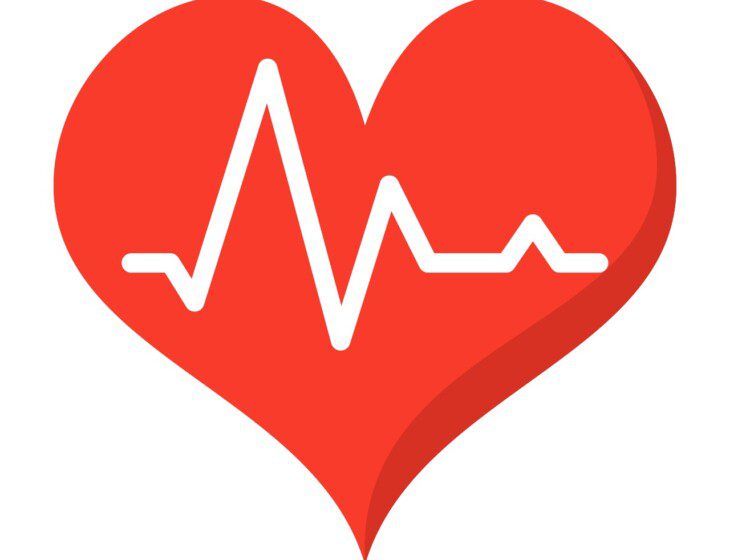Your heart is an amazing organ. It beats 100,000 times a day and about 35 million times in a year. It circulates six quarts of blood through your body three times every minute. Oxygen-poor blood flows into the heart, out to the lungs where it picks up oxygen, back to the heart, and out to all parts of the body. In one day, the blood travels about 12,000 miles — four times the distance across the U.S. from coast to coast.
To help your heart do its job, consider these 12 tips for heart health. They can reduce your risk of coronary artery disease — the leading cause of death for both men and women in the U.S.
How to keep your arteries clear and your heart healthy.
Making healthy eating choices and getting regular exercise can help keep cardiovascular disease at bay. But there’s more you can do to keep your ticker going strong. Follow these heart health tips for a healthier, happier you.
1. Eat less. Those extra pounds around your waist can increase your risk for coronary artery disease and stroke. Despite what your parents said at the dinner table, you don’t have to eat everything on your plate. Try using a smaller plate. Eat more veggies and protein. And drink water with your meal.
2. Eat more vegetables and fruit. Just five servings a day can lower your risk of heart attack and stroke. Fruits and vegetables contain many healthful nutrients, especially fiber, which helps lower cholesterol and blood pressure.
3. Skip the salt. Excessive salt intake can lead to high blood pressure, which stiffens and narrows the blood vessels. To compensate for decreased blood flow, the heart tries harder to pump blood throughout the body, which further increases blood pressure. Instead of salt, try lemon juice, or make your own herb and spice blend.
4. Avoid trans and saturated fats. Trans fat has no place in your diet. And you should limit your intake of red meat, whole-milk dairy products, and butter, all of which contain high levels of saturated fat. Not all fat is bad though. Unsaturated fats from nuts, grains, fish and liquid oils are good for you. They help lower LDL cholesterol, have antioxidant and anti-inflammatory properties, and reduce your risk of having a heart attack.
5. Make half your grains whole. Whole grains such as oats, barley, bulgar, quinoa and brown rice contain a wide range of nutrients that are good for your heart. Rich in fiber, whole grains can help you reduce cholesterol and lower your risk of heart disease, stroke, obesity, and even Type 2 diabetes. If you’re trying to lose weight, the added fiber can help you feel full with fewer calories.
6. Go for lean protein. Most animal-based protein contains saturated fat. Red meat and eggs contain carnitine, which has been linked to hardening of the arteries. Fatty fish, such as salmon or tuna, are rich in omega-3 fatty acids, which may help prevent blood clots, calm dangerous heart rhythms, and lower blood pressure. Have fish or seafood twice a week. Or go vegetarian; eating beans and nuts can lower your risk of heart disease.
7. Rethink your drink. Substitute water for sugary drinks to reduce calories. If you drink alcohol, do so in moderation. Moderate consumption of alcohol can help raise your levels of HDL (good cholesterol). It can also help prevent blood clots and artery damage. Don’t overdo it though. No more than one drink a day for older adults is the advice from the Mayo Clinic.
8. Move more, sit less. Sitting for long periods can increase your risk of a blood clot and shorten your lifespan. Take frequent breaks, and remember to exercise on most days. Try to get at least 150 minutes of moderate-intensity aerobic activity every week, plus muscle-strengthening activities at least two days a week. Choose activities you enjoy. Dancing, gardening, hiking, walking — whatever gets you moving and makes you happy.
9. Quit smoking. If you’re a smoker, quit. Smoking nearly doubles the risk of developing coronary artery disease and having a heart attack. Even if you don’t smoke, you should avoid secondhand smoke. Studies show the risk of developing heart disease is 25%-30% higher for people who are exposed to secondhand smoke at home or work.
10. Floss your teeth. Studies have shown that bacteria in the mouth involved in gum disease can move into the bloodstream and cause inflammation in the blood vessels. This may increase your risk of heart disease and stroke. So brush your teeth at least twice a day and floss daily. What’s good for your gums may be good for your heart, too.
11. Manage stress. Chronic stress and anxiety can be bad for heart health. Anxiety triggers the release of stress hormones such as cortisol and adrenaline, which can increase heart rate and blood pressure. To reduce stress levels, slow down. Allow enough time to get the most important things done without having to rush. Try meditation, listening to music, talking with friends or family, or volunteering. Exercise is another way to reduce stress and lessen the toll it takes on your heart.
12. Get a good night’s sleep. People who sleep less than six hours per night tend to have more cardiovascular risks than those who sleep longer, including higher blood pressure and chronic inflammation, which contributes to plaque formation in the arteries. One study looking at 3,000 adults over age 45 found those who slept fewer than six hours per night were about twice as likely to have a stroke or heart attack as people who slept six to eight hours per night. If you’re having trouble getting a good night’s sleep, try these healthy sleep tips.
We take your health to heart.
Making healthy lifestyle choices is easy at Friendship Village of South Hills. With our whole-person approach to wellness, healthy and delicious dining choices, and full range of health services, we’re committed to supporting the health of each and every resident. And with our maintenance-free lifestyle, you really can live to your heart’s content. To learn more, contact us by filling out the form at the bottom of the page. We’d love to hear from you.


